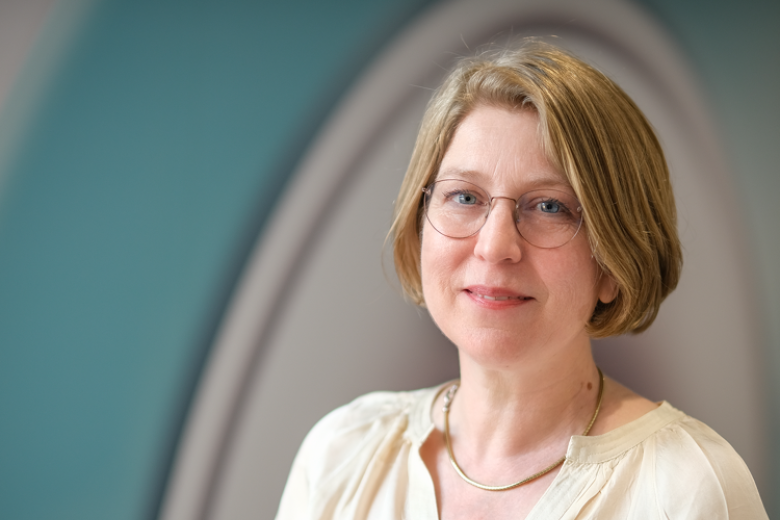Launch of the MUMC+ Climate HEALTH Institute
NUTRIM is proud to collaborate in this new institute with specific research, expertise and infrastructure like the advanced climate chambers.
Annemie Schols, dean of FHML:
"We're already seeing the consequences: more heat-related complaints, climate stress, and increasing health inequality, That's why we're taking action now."
Climate-adaptive health
Climate change is becoming increasingly felt. Extreme heat, heavy rainfall, and poor air quality are putting pressure on the health of residents. The elderly, people with chronic conditions, and those in vulnerable situations are particularly affected. In this innovative new institute, researchers, healthcare professionals, and students join forces to better understand, mitigate, and prevent the growing health threats linked to a warming planet.
MUMC+ (FHML and hospital) join forces to address the health impacts of climate change and to unravel the complex health consequences of climate change, with a strong emphasis on delivering practical solutions for challenges like heat stress.
Together we make a difference. Institute goals and actions:
The Climate Health Institute unites FHML’s eight research institutes with the hospital’s clinical centers, pooling knowledge and expertise to mold effective solutions that can be applied in real-world healthcare settings. The primary focus lies on linking research directly to care, with South Limburg serving as a key testing ground. Students are deeply involved, learning firsthand via a Student Hub how they can contribute to climate-adaptive healthcare. Over the next five years, at least 5 million euros will be dedicated to supporting research and educational initiatives that push this agenda forward.
NUTRIM’s contribution and co-investment in health
NUTRIM is proudly involved within the Climate Health Institute. Scientists, healthcare professionals, and PhD students from NUTRIM will work collaboratively with other FHML institutes, hospital professionals to unravel the complex health consequences of climate change, with a strong emphasis on delivering practical solutions for challenges like heat stress.
An example of this research is the use of NUTRIM’s advanced climate chambers, where teams such as those led by Hannah Pallubinsky have already exposed vulnerable individuals to high temperatures (up to 35°C) to study physiological adaptation. Their findings show that the human body can gradually adapt to heat, reducing risks and strain. These insights—such as the reality that merely using air conditioning is not a sufficient solution for vulnerable groups—are invaluable for designing prevention programs that will be disseminated widely.
South Limburg as a testing ground
The South Limburg region is the ideal place to work on climate-adaptive health. “The consequences of climate change are painfully visible in South Limburg,” says Schols. “Here, an aging population, health disparities, and an unhealthy living environment converge, making the risks of climate change particularly acute. That makes our region the ideal place to develop and test new solutions.”
The Maastricht Health Campus, of which Maastricht UMC+ is a part, offers a unique innovation ecosystem for this purpose. Science, healthcare, residents, and the business community work together on innovation. With internationally leading facilities, such as 3D cell models and special climate chambers, research into health and climate can be accelerated here.
Commitment and Collaboration
With this collaborative, multidisciplinary approach, the Climate Health Institute aims to make a measurable difference for the region and beyond.
Dr. Helen Mertens, chair of the board of Maastricht UMC+:
“High temperatures already exacerbate the symptoms of, for example, heart patients or people with COPD,” “We would like to investigate and better understand the impact of climate change on our health. And how we can prepare ourselves preventively for those consequences for our well-being.”
Also read
-
NUTRIM PhD Introduction days 29 and 30 October 2025
To kickstart your PhD journey with us, the NUTRIM PhD Council and Coordinators invite you to the NUTRIM Introduction Days.
-
Prestigious Veni grant 2025 for Niels van Best
NUTRIM’s Niels van Best received a Veni grant for groundbreaking research "SIGNature: Species of the Infant Gut strengthened by Nature"

-
The spin doctor: Resonance between imaging and health
Prof. Jeanine Prompers: Visualizing metabolism at the organ level helps tremendously in prevention and personalizing health care. An interview with newly inaugurated NUTRIM Prof. Jeanine Prompers.
